Happy New Year from Pioneer Institute
/0 Comments/in Featured /by Editorial Staff Share on Facebook
Share on Twitter
Share on
LinkedIn
+
We hope you are taking time to celebrate and find peace during this season. Thank you for your support for Pioneer, which has helped us stay focused on steering the state’s debate on the pandemic response, and making progress on our key policy objectives. Here’s to a great 2021 for Massachusetts and the country.
Recent Posts

Lipan Apache Tribe’s Pastor Robert Soto on Native American Heritage Month & Religious Liberty
This week on “The Learning Curve," co-hosts Gerard Robinson and Cara Candal talk with Pastor Robert Soto, a Lipan Apache religious leader and award-winning feather dancer who has successfully upheld his Native American cultural heritage and religious liberties in federal courts. As the country celebrates Native American Heritage Month, Pastor Soto shares his personal journey as a religious leader and describes the Lipan Apache Tribe.
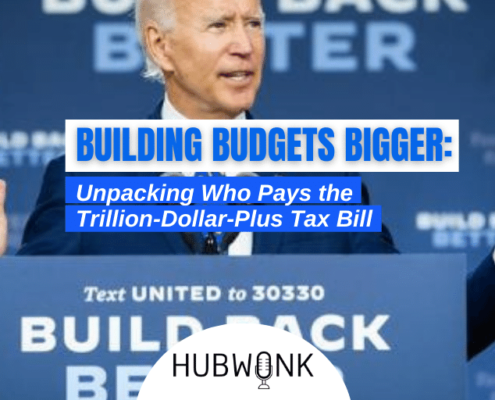
Building Budgets Bigger: Unpacking Who Pays the Trillion Dollar Plus Tax Bill
Hubwonk host Joe Selvaggi talks with Kyle Pomerleau, senior fellow on federal tax policy at American Enterprise Institute about the Build Back Better Act now in Congress, to understand how those new taxes will affect individuals, business, and the economy.

Chan Zuckerberg Initiative’s Dr. Bror Saxberg on Learning Science & School Reform
This week on “The Learning Curve,” co-hosts Gerard Robinson and Cara Candal talk with Dr. Bror Saxberg, MD, Vice President of Learning Science at the Chan Zuckerberg Initiative. Dr. Saxberg describes his groundbreaking work in the area of learning science and understanding how “working memory” and “long-term memory” can help improve academic excellence and equity.

Supply Chains Understood: Covid’s Global Demand Stress Test
https://www.podtrac.com/pts/redirect.mp3/chtbl.com/track/G45992/feeds.soundcloud.com/stream/1148317750-pioneerinstitute-hubwonk-ep-78-supply-chains-understood-covids-global-demand-stress-test.mp3
This…
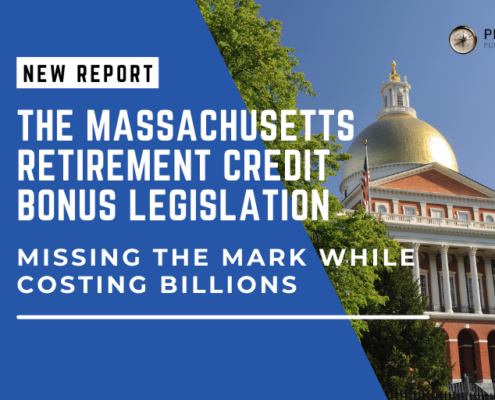
Study: Pandemic Pension Bonus Bills Would Cost Billions and Unfairly Favor Highly Compensated Public Employees
Two identical bills to reward public employees with a retirement credit bonus for working during the COVID-19 emergency are currently pending in each chamber of the Massachusetts Legislature. The bills would add billions of dollars in liabilities to public pension funds and reward workers based on their compensation, years of service and age rather than the type or duration of the work performed during the emergency, according to a new study published by Pioneer Institute.

Award-Winner Prof. David Reynolds on Abraham Lincoln & American Civil War Culture
This week on “The Learning Curve," co-hosts Gerard Robinson and Cara Candal talk with David Reynolds, a Distinguished Professor of English and History at the Graduate Center of the City University of New York. He is the author of Abe: Abraham Lincoln in His Times, selected as one of the Top Ten Books of the Year by The Wall Street Journal and The Washington Post. Professor Reynolds shares what teachers and students alike should know about the culture of Civil War America, primary education in that era, and the wide variety of influences on Lincoln’s thinking and leadership.
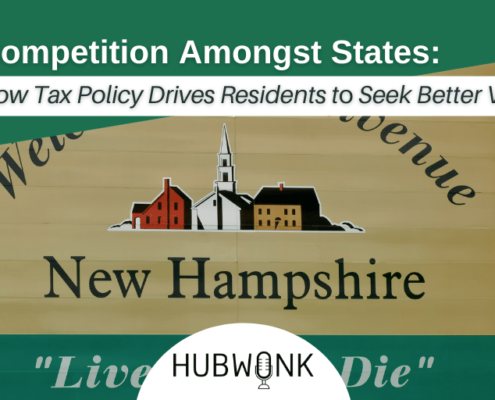
Competition Amongst States: How Tax Policy Drives Residents to Seek Better Value
This week on Hubwonk (our debut video & audio edition), Host Joe Selvaggi talks with research analyst Andrew Mikula about the findings from his recent report, A Timely Tax Cut, in which he explored the relationship between state tax rates and policy and the direction of interstate migration.

CRPE’s Robin Lake on COVID School Closures & Learning Loss
This week on “The Learning Curve," co-hosts Gerard Robinson and Cara Candal talk with Robin Lake, director of the Center on Reinventing Public Education (CRPE), a non-partisan research and policy analysis organization developing transformative, evidence-based solutions for K-12 public education.
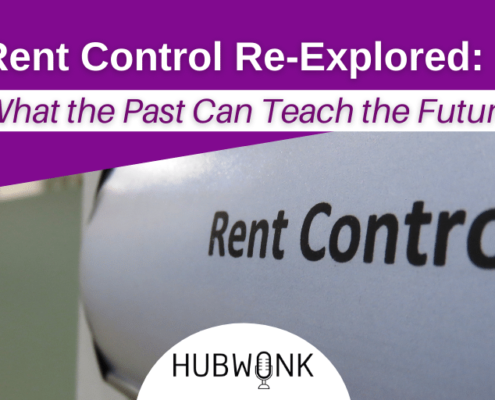
Rent Control Re-Explored: What the Past Can Teach the Future
Hubwonk Host Joe Selvaggi talks with economist and MIT Professor Chris Palmer about his research and analysis of the effects of rent control in Cambridge during its 25-year implementation and in the aftermath of its repeal.
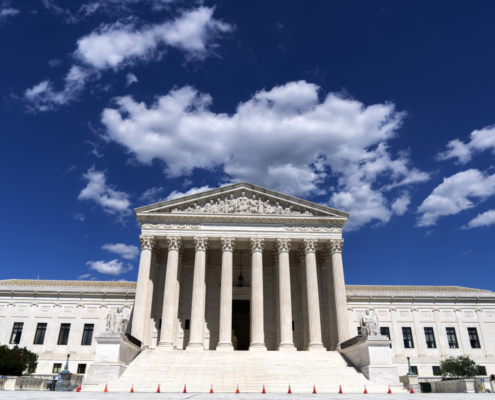
Maine Tries to Ignore a Clear Supreme Court Ruling on Education
As the U.S. Supreme Court takes up Carson v. Makin, the facts are clear. Maine has chosen to subsidize private education. As such, it cannot disqualify all religious schools from receiving public dollars under its school choice program.

Study Warns that New Hampshire Tax Policies Would Exacerbate Impacts of a Graduated Income Tax
Drawing on migration patterns between Massachusetts and states like Rhode Island and Tennessee, Pioneer Institute is releasing a study showing a direct correlation between personal income tax rates and household domestic migration patterns between 2004 and 2019. The study suggests that instituting a graduated income tax will shrink the tax base and deter talented workers and innovative employers from coming to and staying in the Bay State.

Prof. Raymond Arsenault on the 60th Anniversary of the Freedom Rides & Civil Rights
This week on “The Learning Curve," co-hosts Gerard Robinson and Cara Candal talk with Raymond Arsenault, the John Hope Franklin Professor of Southern History at the University of South Florida, and author of several acclaimed and prize-winning books on civil rights, including Freedom Riders: 1961 and the Struggle for Racial Justice. He shares how he became interested in researching, writing, and teaching about the Civil Rights Movement.
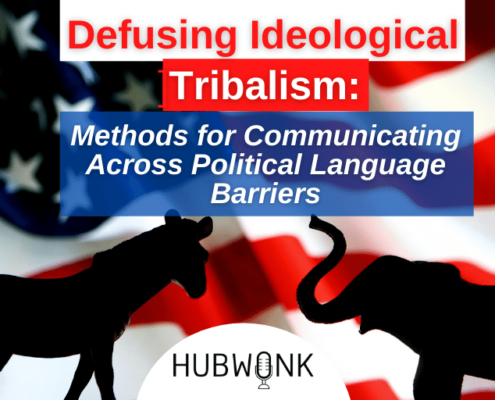
Defusing Ideological Tribalism: Methods for Communicating Across Political Language Barriers
Hubwonk host Joe Selvaggi talks with economist and author Dr. Arnold Kling about his book, The Three Languages of Politics, Talking Across the Political Divides, which outlines the dynamics of political tribalism, defines the respective world view and vocabulary of progressives, conservatives, and libertarianism, and offers methods for communicating and persuading across ideological lines in a way that fosters civil, productive, public debate.
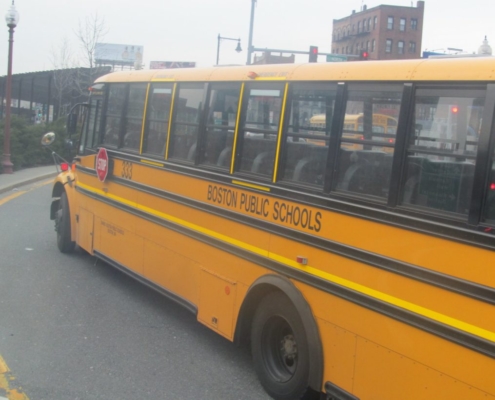
Time for State Action on Troubled Boston Schools
Given the failures of both appointed and elected school boards, perhaps the time has come to have the state Department of Elementary and Secondary Education appoint the members of the Boston School Committee. Patience might be warranted if the Boston Public Schools were improving. But we have waited for decades, and they are only getting worse. Holding adults in the system accountable was a cornerstone of the Education Reform Act. If not now, when?

Pioneer Applauds MassDOT for Allston Project All At-Grade Plan
Pioneer Institute applauds the Massachusetts Department of Transportation (Mass DOT) for its decision to move forward with an all at-grade design for the “throat” area as part of the massive $1.7 billion Allston I-90 Interchange project announced yesterday by State Secretary of Transportation Jamey Tesler. Pioneer had proposed that MassDOT should revise its Scoping Report on the I-90 Allston Multimodal Project and recommend an additional option - a modified at-grade option for the throat area - to the Federal Highway Administration.

Match Charter Public School Founder Mike Goldstein on School & Teacher Prep Reform
This week on “The Learning Curve," co-hosts Gerard Robinson and Cara Candal talk with Mike Goldstein, the founder of the MATCH Charter School and MATCH Teacher Residency in Boston.

Study: After Years of Steady Increases, Homeschooling Enrollment Rose Dramatically During COVID
After steadily increasing for years, the number of parents choosing to homeschool their children skyrocketed during the pandemic, and policy makers should do more to acknowledge homeschooling as a viable option, according to a new study published by Pioneer Institute.

Marathon Endurance Test: Leaders Pave the Way for Boston’s Return
Hubwonk host Joe Selvaggi talks with Boston Athletic Association’s CEO Tom Grilk about the leadership challenges of cancelling the world’s oldest continuous marathon, a $200-million benefit to the region involving eight municipalities and 10,000 volunteers, in the face of a pandemic - and how cooperation among stakeholders brought back the epic event to be run this October.



